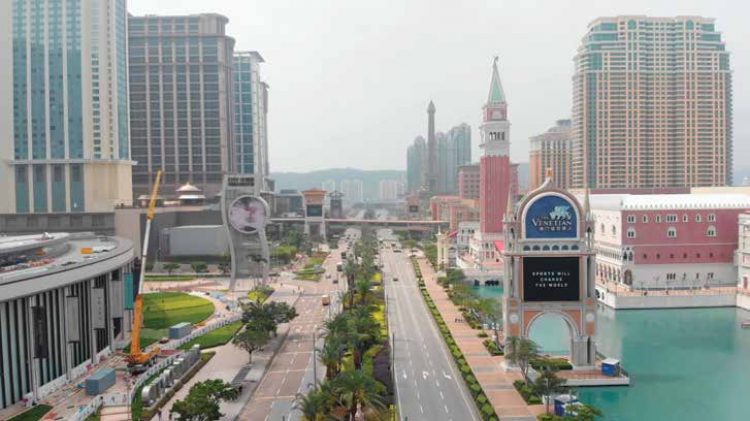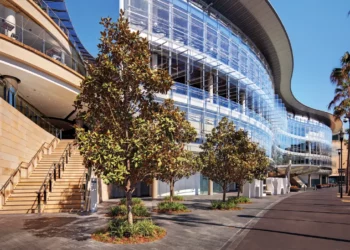An advisor to the Macau SAR Government over many years, Newpage Consulting’s David Green explains why authorities should consider delaying the upcoming re-tender process for Macau gaming licenses.
The unanticipated duration and severity of the COVID-19 pandemic necessitates a re-think about the timing of the upcoming tender of concessions to operate casino games of chance in Macau.
While the impact of the pathogen on the casino industry globally has been far from uniform, it is significant for Macau that the United States has been hit particularly hard, and at this stage appears a long way off bringing its public health emergency under control.
Half of the six current concession contracts are held by companies affiliated with Nevada gaming licensees. Gaming revenue in Nevada in April was down 99% on the same month of 2019. It has since continued to plumb depths neither seen nor imagined. While gaming revenue generally represents less than half of all revenues generated by those companies, their income from entertainment, dining and retail offerings has fallen commensurately with the decline in gaming win. Social distancing has largely seen to that.

Macau of course has not fared much better, with gaming revenue down 97% in June, and almost 95% in July. While there are some positive indications that Macau may be over the worst, it remains to be seen whether its source markets move in parallel. In the improbable event they do, the residual damage to economies and confidence will constrain the enthusiasm of many to travel to Macau, much less carry on gaming and spending as they did before the virus arrived.
While it remains unknown what the SAR government’s expectations are for the outcomes of the tender process, as recently as April the Secretary for Economy and Finance was implying that the government would expect more from the next round than it achieved from the 2002 process.
“Gaming liberalization in 2003 (sic) and the re-tendering in 2022 are two different discussions at different levels,” he said. “In 2003, Macau did not have enough conditions to make a choice, today we have more spaces and conditions to decide the direction of the gaming industry.”
Approaching the end of August, it is difficult to share the Secretary’s confidence. The direction of the gaming industry is now being decided by a force which is beyond the control of governments and operators. The longer the pandemic continues to ravage global economies the less likely it is that activity will snap back to anywhere near where it was, when the coronavirus has finally been conquered or community transmission of it eliminated. The so-called second wave of infections appearing in Europe, Singapore, Japan and Australia suggests that a protracted U- or W-shaped recovery is a more probable scenario.
 Irrespective, there seems to be an emerging broad consensus among economists that it will take many years, if not decades for the private sector to recover from the collapse or impairment of supply chains, the enforced prolonged closure of retail outlets, the disruption of work practices, the displacement of workforces due to depression-level unemployment, the inevitable tapering of government fiscal stimulus packages and the negative sentiment and fear affecting customers who have become conditioned to buying online.
Irrespective, there seems to be an emerging broad consensus among economists that it will take many years, if not decades for the private sector to recover from the collapse or impairment of supply chains, the enforced prolonged closure of retail outlets, the disruption of work practices, the displacement of workforces due to depression-level unemployment, the inevitable tapering of government fiscal stimulus packages and the negative sentiment and fear affecting customers who have become conditioned to buying online.
For the government to proceed with a tender after expiry of the current concessions in June 2022 is to invite a sub-optimal outcome. The Chief Executive has a viable option, which is to unilaterally extend the term of the existing concessions, using the discretion vested in him by Article 13,3 of Law 16/2001. There can be no doubt COVID-19 presents the required “exceptional condition” which is required to trigger the exercise of the discretion.
Extending the concessions by five years, the allowable maximum, would provide the concessionaires an opportunity to recalibrate and recover. It would also allow potential new entrants additional time to track the post-COVID performance of the industry in Macau.
It is by no means clear that running a 2022 tender will allow a post-COVID recovery of either gaming or non-gaming revenue.
An advantage of a deferral of the upcoming tender is that it would allow the government additional time to process the results of its delayed public consultation, as well as to consider possible regulatory improvements and efficiencies which would provide greater certainty, and less compliance cost to operators.
A further and distinctly material advantage is that the government could offer concession terms extending through to December 2049, when the SAR and its Basic Law will effectively expire. Suppose the existing concessions were extended until 2027; that would leave a further 22 years post-award and execution of new concession contracts, a term only two years longer than the existing term of each concession. Should the tender proceed in 2022, the temptation might be to shorten the term, say to 15 years, and leave it to a succeeding administration to make what it could from a final 12-year concession term. Certainty commands a premium – hence a longer final term is highly likely to produce a better outcome for the SAR than two shorter terms.
 Whatever course the government may take, it should prepare itself for pushback should it aggressively pursue a high premium for the grant of new concessions. The pandemic risk is not limited to COVID-19. Bird flu, swine flu, MERS and SARS have all had pandemic potential, and all have impacted Asia within the last 20 years.
Whatever course the government may take, it should prepare itself for pushback should it aggressively pursue a high premium for the grant of new concessions. The pandemic risk is not limited to COVID-19. Bird flu, swine flu, MERS and SARS have all had pandemic potential, and all have impacted Asia within the last 20 years.
Operators will have to develop new responses to the long-tail impact of such pathogens on travel, casino floors, convention and meeting spaces, and hotel occupancy rates, in particular. There can be no certainty that any operator will willingly commit billions of US dollars to the construction of new integrated resorts, whether in Macau or anywhere else. An unwillingness to recognize this new dynamic is to portend failure.




























